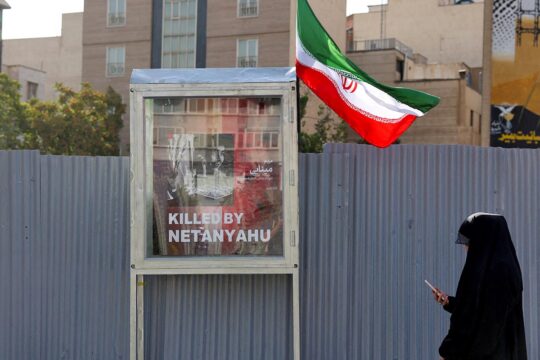The Dutch Supreme court on Friday upheld a ruling that the state was partially liable for the deaths of hundreds of Muslim men in the 1995 Srebrenica massacre in Bosnia, but drastically reduced the level of responsibility.
Here are key facts about Srebrenica, the worst massacre in Europe since World War II and the darkest episode in the break-up of the former Yugoslavia.
What happened:
Declared a "safe area" by the UN in April 1993, the mainly-Muslim town of Srebrenica in eastern Bosnia was surrounded by Bosnian Serb army forces in a slow stranglehold for the next two years.
On the morning of July 11, 1995, the Bosnian Serb army finally overran Srebrenica, causing tens of thousands of refugees to flee to the Dutch UN peacekeeping force's compound at Potocari on the hilly town's northern outskirts.
The peacekeepers and about 5,000 refugees, mostly women and children, retreated into the UN base, while thousands of others gathered outside.
The refugees inside the base were eventually expelled into the hands of waiting Bosnian Serb troops, who started forcibly bussing people out, separating the men and boys from the women.
In the following days almost 8,000 Muslim men and boys were systematically butchered by the Bosnian Serb forces under Ratko Mladic's command and their bodies dumped in mass graves.
These included around 350 Bosnian men expelled from the Dutch base. These were at the centre of the case brought by the "Mothers of Srebrenica" in Dutch courts.
On Friday the Netherlands Supreme Court reduced the level of the Dutch state's liability for the deaths of these men from 30 percent to 10 percent, saying there was only a "slim" chance of saving them.
Prosecution:
The International Criminal Tribunal for the former Yugoslavia (ICTY) indicted 20 suspects for crimes committed at Srebrenica. All have been arrested and brought to The Hague.
The ICTY has since been replaced by a new tribunal, the UN International Residual Mechanism for International Criminal Tribunals, which deals with outstanding cases including from the former Yugoslavia and Rwanda.
Key sentences:
- Radovan Karadzic -
The highest-ranking Bosnian Serb political leader was sentenced to life in prison on appeal in March. The judges later threw out a last-ditch attempt for a renewed appeal, saying it had "no legal basis." Karadzic is behind bars at the UN's high-security detention unit in The Hague.
- Zdravko Tolimir -
Considered Mladic's right-hand man, Tolimir was handed a life sentence in April 2015. The former intelligence and security chief was found guilty of genocide and other crimes. He died in February while awaiting transfer from the ICTY's detention centre.
- Radislav Krstic -
The Bosnian Serb general led the attack on Srebrenica and was the first-ever suspect to be convicted of aiding and abetting genocide. Sentenced to 35 years in prison, his case was upheld on appeal in April 2004.
- Popovic and others -
The ICTY on appeal in January 2015 confirmed two life sentences for Vujadin Popovic and Ljubisa Beara, two senior officers in the Bosnian Serb army convicted of genocide.
Trials currently under way:
- Ratko Mladic -
Nicknamed the "Butcher of Bosnia", Mladic was sentenced to life in prison in November 2017. Judges said he "intended to eliminate Bosnian Muslims by killing men and boys." Mladic is appealing the charges and has urged judges to acquit him. He is still behind bars at the UN's detention unit in The Hague.
- Jovica Stanisic and Franko Simatovic -
Judges ordered that former Serbian intelligence chief Stanisic and his deputy Simatovic be retried after being acquitted in May 2013.
Acquittals:
- Momcilo Perisic -
The former Yugoslav ex-army chief was acquitted on appeal in February 2013, after having been initially sentenced to 27 years.
Died during trial:
- Slobodan Milosevic -
The former Yugoslav president and Serbian strongman died in detention in March 2006, facing genocide, war crimes and crimes against humanity charges.


